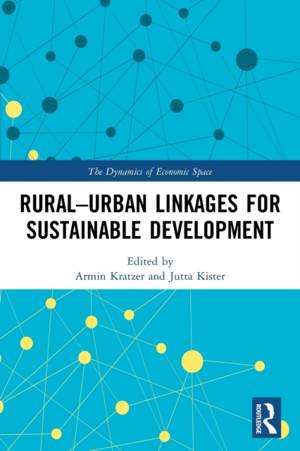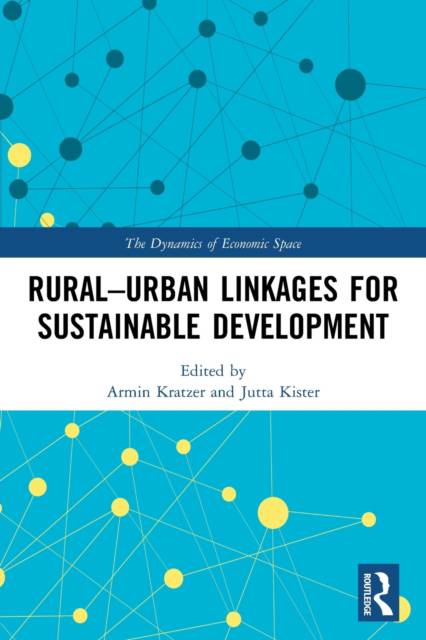
- Retrait gratuit dans votre magasin Club
- 7.000.000 titres dans notre catalogue
- Payer en toute sécurité
- Toujours un magasin près de chez vous
- Retrait gratuit dans votre magasin Club
- 7.000.0000 titres dans notre catalogue
- Payer en toute sécurité
- Toujours un magasin près de chez vous
Rural-Urban Linkages for Sustainable Development
Description
This book critically examines different forms of urban-rural links for sustainable development in different countries.
As intertwined processes of globalization, digitalization, environmental challenges and the search for sustainable development continue, rural and urban areas around the world become increasingly interconnected and interdependent. This book contributes to understanding the role of this growing interconnectedness from an economic geographical perspective. It does so by theoretically and empirically addressing the various existing linkages, such as food networks, value chains, and regional governance at local, regional, national and international levels. In doing so, contributions extend and contrast existing approaches dealing with urban and rural areas separately by considering the interplay between these two as well as their consequences for sustainability transition pathways. This edited volume adds to the academic and policy debate by bringing together a variety of concepts and themes in order to shift the research and policy agenda away from simple dichotomy to different notions of rural-urban linkages.
Offering multidisciplinary insights into rural-urban linkages, the book will be of interest to decision-makers, practitioners and researchers in the fields of economic geography, regional planning, food studies and economics.
Spécifications
Parties prenantes
- Editeur:
Contenu
- Nombre de pages :
- 280
- Langue:
- Anglais
- Collection :
Caractéristiques
- EAN:
- 9780367545932
- Date de parution :
- 29-04-22
- Format:
- Livre broché
- Format numérique:
- Trade paperback (VS)
- Dimensions :
- 156 mm x 234 mm
- Poids :
- 394 g

Les avis
Nous publions uniquement les avis qui respectent les conditions requises. Consultez nos conditions pour les avis.





